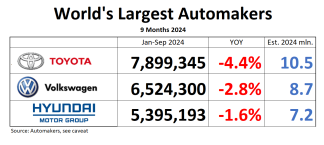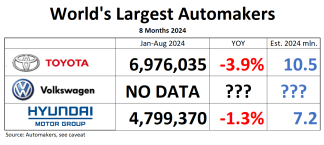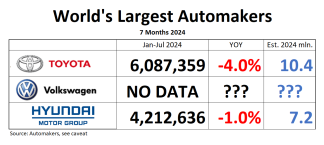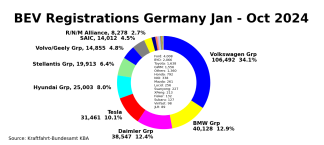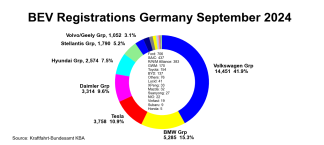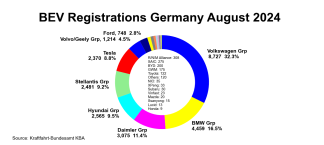When Fiat announced a deal to buy out the UAW VEBA’s stake in Chrysler, the Italian firm told the press that the transaction would be completed “on or before” January 20. The deadline was self-imposed, so there was no penalty for missing it… but miss it they did. As it became clear that the deal would not happen yesterday, the Detroit Free Press reported that the likely delay came down to the fact that the close deadline was in fact Martin Luther King Jr Day, a bank holiday in the US. And today, with banks open once again, Reuters reports that the deal is done.
But is there reason to worry about this minor stumble? Clearly we’re talking about a minor scheduling error with little, if any, lasting impact… but then, the whole Fiat-Chrysler proposition is so fraught with unanswered questions and potential drama, even the small things can provoke several sobering questions. To wit:
1: Chrysler’s previous merger with an overseas firm, the DaimlerChrysler “marriage of equals,” was a case study in failed integration and left deep scars on Chrysler. With plans still up in the air about what to call the new Fiat-Chrysler and where to locate it, huge questions about the integration of the two firms remain unanswered. Highlighting questions around the sustainability of the merged automaker’s culture is the fact that nobody seems willing or capable of following CEO Sergio Marchionne’s manic, cross-continent leadership role. And with reports that Marchionne is leaning towards a US listing and possibly a US headquarters, come renewed worries about Fiat’s ability to adapt to the distinctive culture of the US auto business. After all, the devil is in the details… but scheduling a deal closing for a bank holiday is just one sign of the potential trouble ahead. More worrying is the weak initial track record of Fiat-based products in the US market. With the Fiat 500 and Dodge Dart underwhelming in sales, it’s up to the new Jeep Cherokee to overcome a rocky launch and prove that Fiat-Chrysler can develop new vehicles (and marketing) that appeal to US consumers. Already the new 200’s fuel economy and size raise concerns. Small cultural miscalculations add up fast, and Fiat-Chrysler is operating with very little margin for error.
2: Where’s the fanfare? Anyone who followed the auto bailout has known for some time that Chrysler would end up as a division of a foreign automaker, but the reality is that very few people followed the auto bailout (perhaps there were other things going on at the time?). The necessity of Fiat to Chrysler’s survival has made it into political talking points, but the reality that “post-bailout Chrysler” is now no different than Toyota, Nissan, Hyundai, Volkswagen or any other foreign-owned automaker with US-based design, R&D and production facilities is hardly the stuff of political braggadocio. So while pro-bailout politicians bathed in the Detroit Auto Show spotlight, today’s event was marked by little more than a quiet announcement… probably a good thing, considering the scheduling issue. More importantly, Fiat’s political balancing act between Italy and the US is failing to win friends in Italy or DC, and even relations with Chrysler-loving Canada have cooled in the face of a labor dispute. Fiat can’t afford to make the massive investments it needs to catch up with the competition, and without support from friendly governments it’s playing without the kind of safety net that just “rescued” PSA Peugeot Citroen.
3: With this in mind, Marchionne is going to have to do some business with the banks, so he’d better learn the holiday schedules. Chrysler’s cash is still “ring-fenced” by the terms of loans Marchionne took on to get out from under what he termed “shyster” government loans, so to go “full marriage of equals” (so to speak) and consolidate cash, Fiat needs yet another Re-Fi. Marchionne has admitted that a mandatory convertible bond offering is an option, though has not yet commented on the rumored $2b amount. The good news is that the CEO of Unicredit, a major Fiat lender, has pronounced his eagerness to intensify his bank’s relationship with the new Fiat-Chrysler. The bad news? Unicredit is under pressure from new Basel III rules and is resorting to what the FT calls “a new development in the evolution of the so-called ‘shadow banking’ sector” to offload shaky debt. According to Reuters, Unicredit has sold at least $2b in risky Italian debt and derivatives to US pensions and hedge funds… including one 95om Euro sale of “non performing loans” to a branch of former Chrysler owner Cerberus. At this point Chrysler could be just another Re-Fi or two away from being owned by Cerberus again!
Fiat’s board will consider the more serious of these issues (i.e. not the Cerberus thing) at a meeting on January 29th… provided, of course, that it’s not some kind of holiday.

